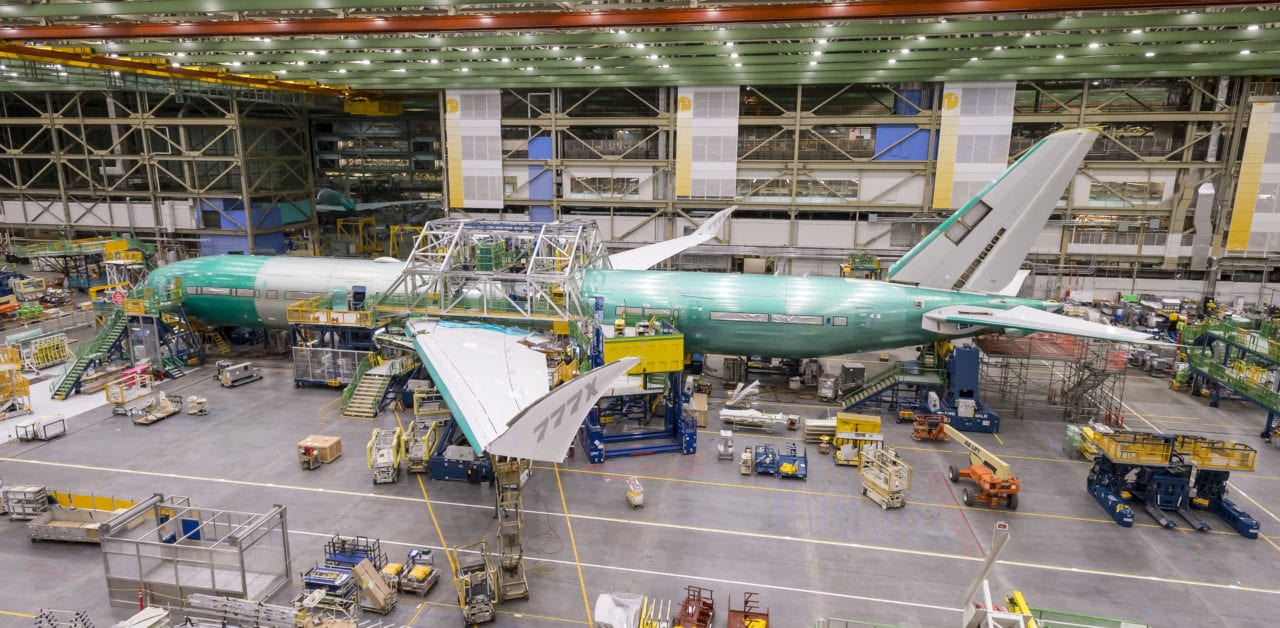
The 777X is one of Boeing’s planes built with carbon fiber, leaving excess valuable composite that can now be recycled. (Boeing)
Through a new partnership between Boeing and ELG Carbon Fibre, excess materials from 11 of the planemaker’s manufacturing sites will be repurposed by other companies, Boeing announced Wednesday. The American manufacturer expects to reduce its annual solid waste by more than one million pounds as a result of the partnership.
The agreement covers carbon fiber used in airframes such as the 787 Dreamliner and the 777X. The same strength-to-weight ratio that makes it attractive as an aerospace material also makes it attractive for a variety of other uses such as laptop cases and car parts.
Boeing is the largest producer of aerospace-grade composite materials. The company said it has been working to create a reuse industry for its carbon fiber for a number of years, but the preparation that it undergoes to be used for aerospace applications made it unfit for other uses. That’s where ELG comes in. The British business developed a process of cleaning “cured” composited by vaporizing resins through a treatment in a furnace that allows them to be recycled.
“Recycling cured carbon fiber was not possible just a few years ago,” said Boeing’s Tia Benson Tolle, materials and fabrication director for product strategy and future airplane development. “We are excited to collaborate with ELG and leverage innovative recycling methods to work toward a vision where no composite scrap will be sent to landfills.”
Boeing and ELG conducted a pilot for the partnership, during which they cleaned 1.5 million pounds of excess composites and sold them to companies in the electronics and ground transportation industries over the course of 18 months.
On ELG’s end, the partnership with Boeing ensures a consistent supply of composites to clean and sell, which ELG Carbon Fibre Managing Director Frazer Barnes expects will help other companies embrace recycled materials.
“Security of supply is extremely important when considering using these materials in long-term automotive and electronic projects,” Barnes said in a prepared statement. “This agreement gives us the ability to provide that assurance, which gives our customers the confidence to use recycled materials.”